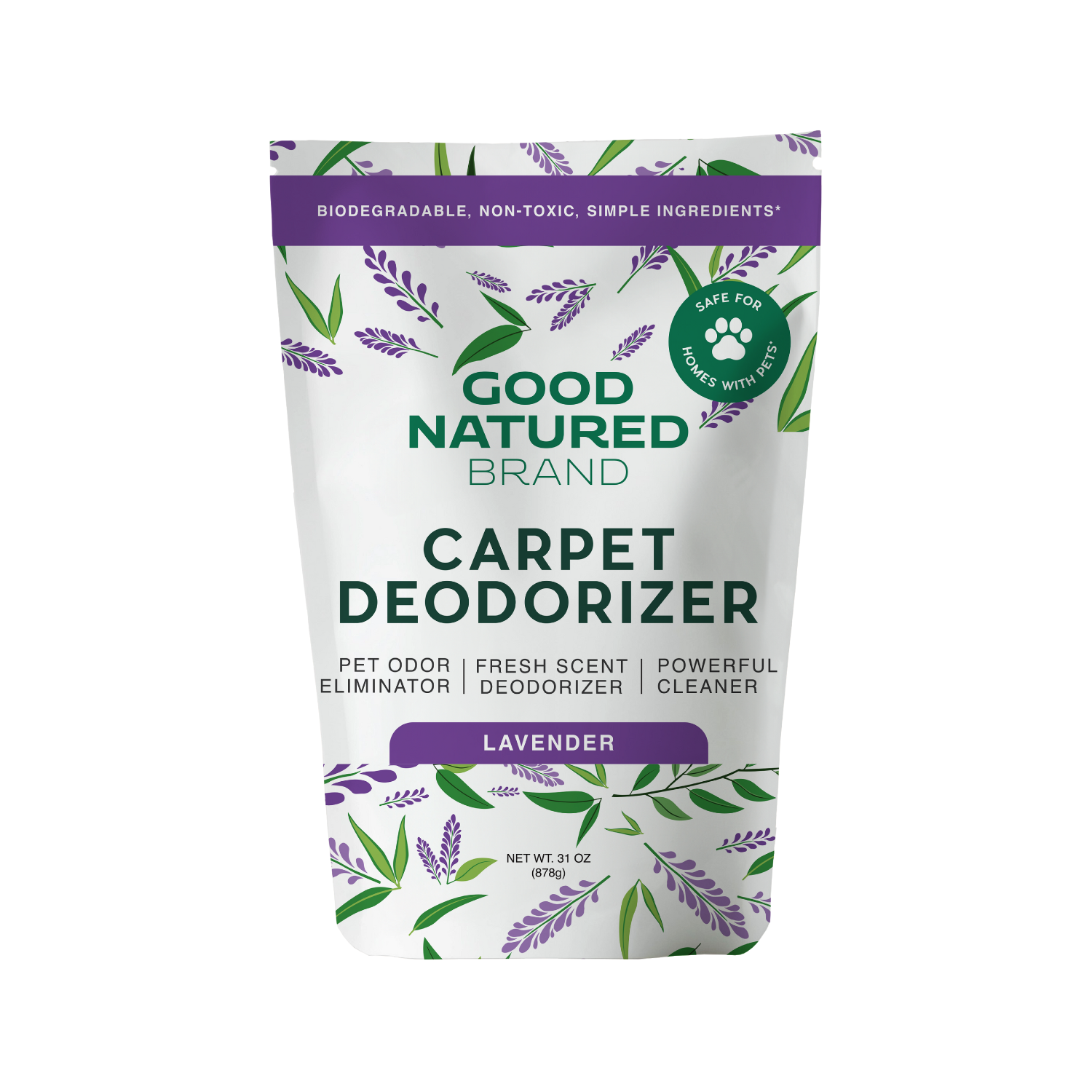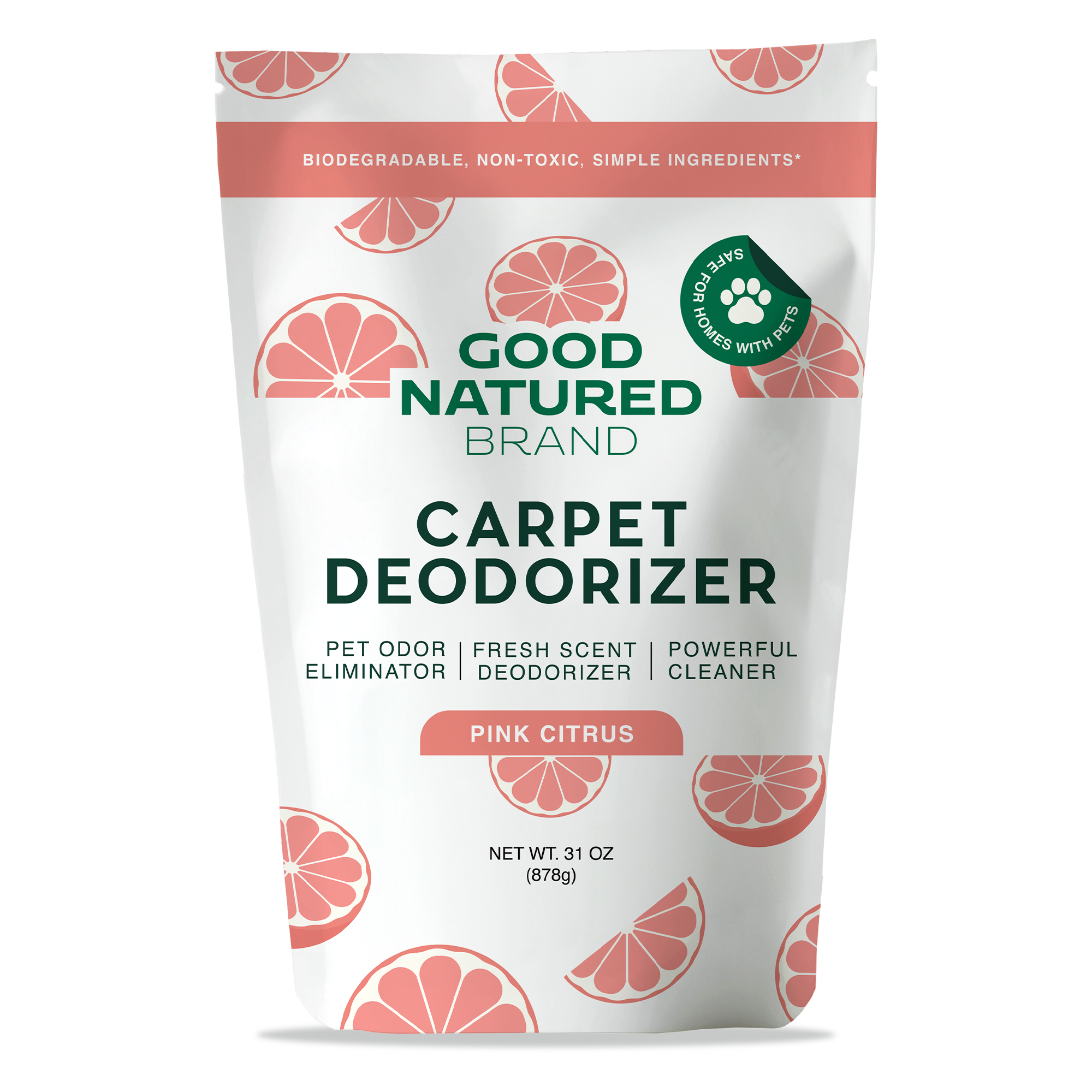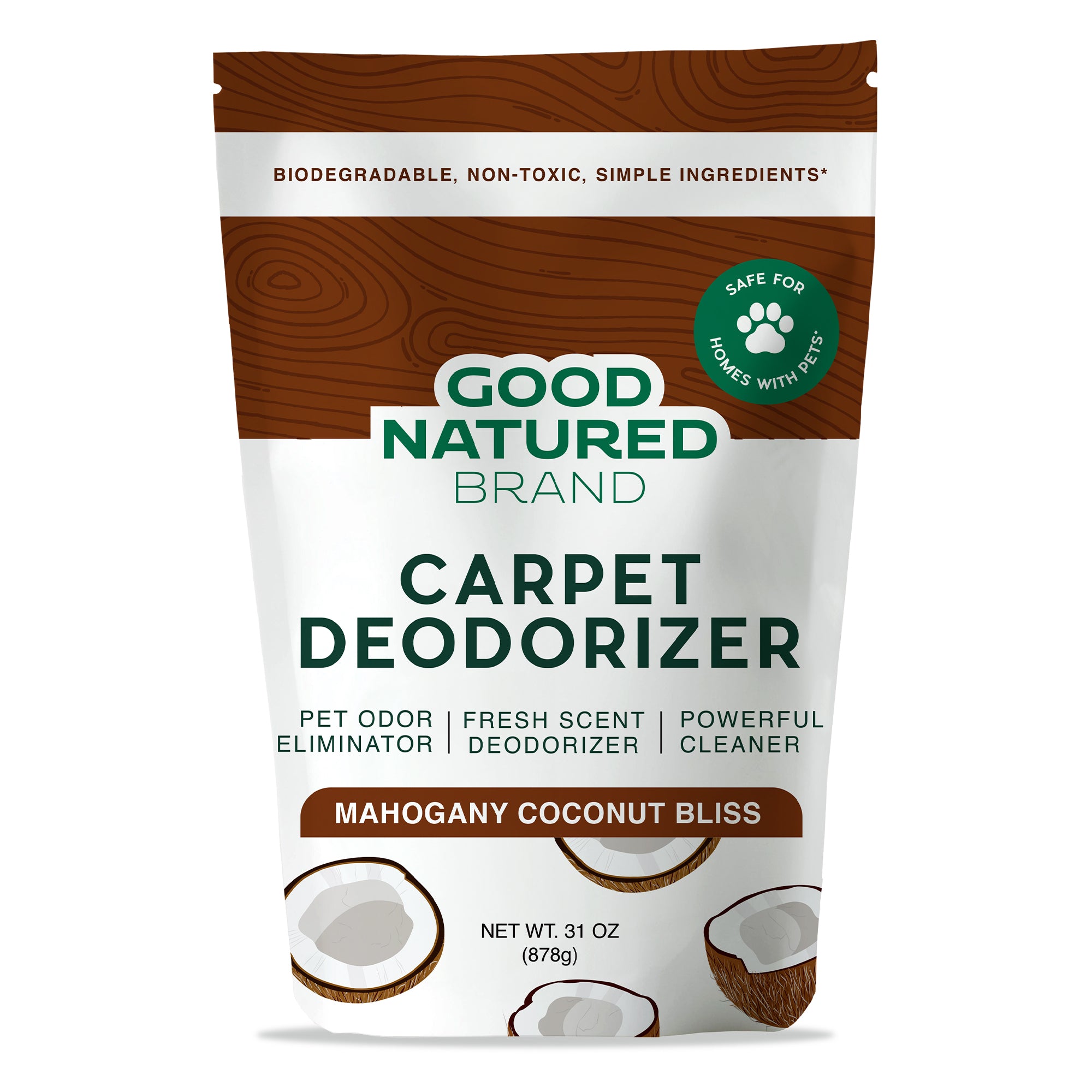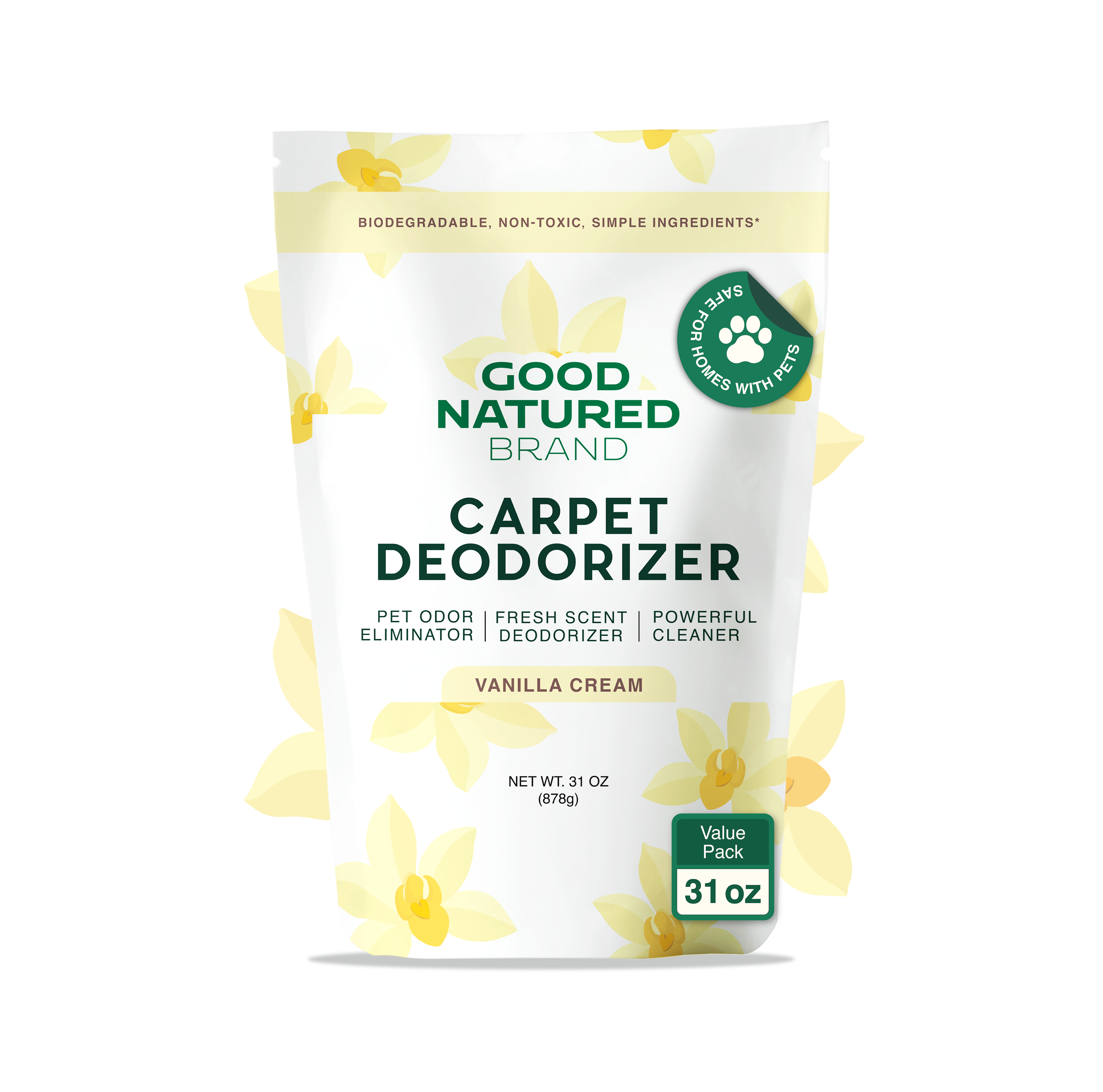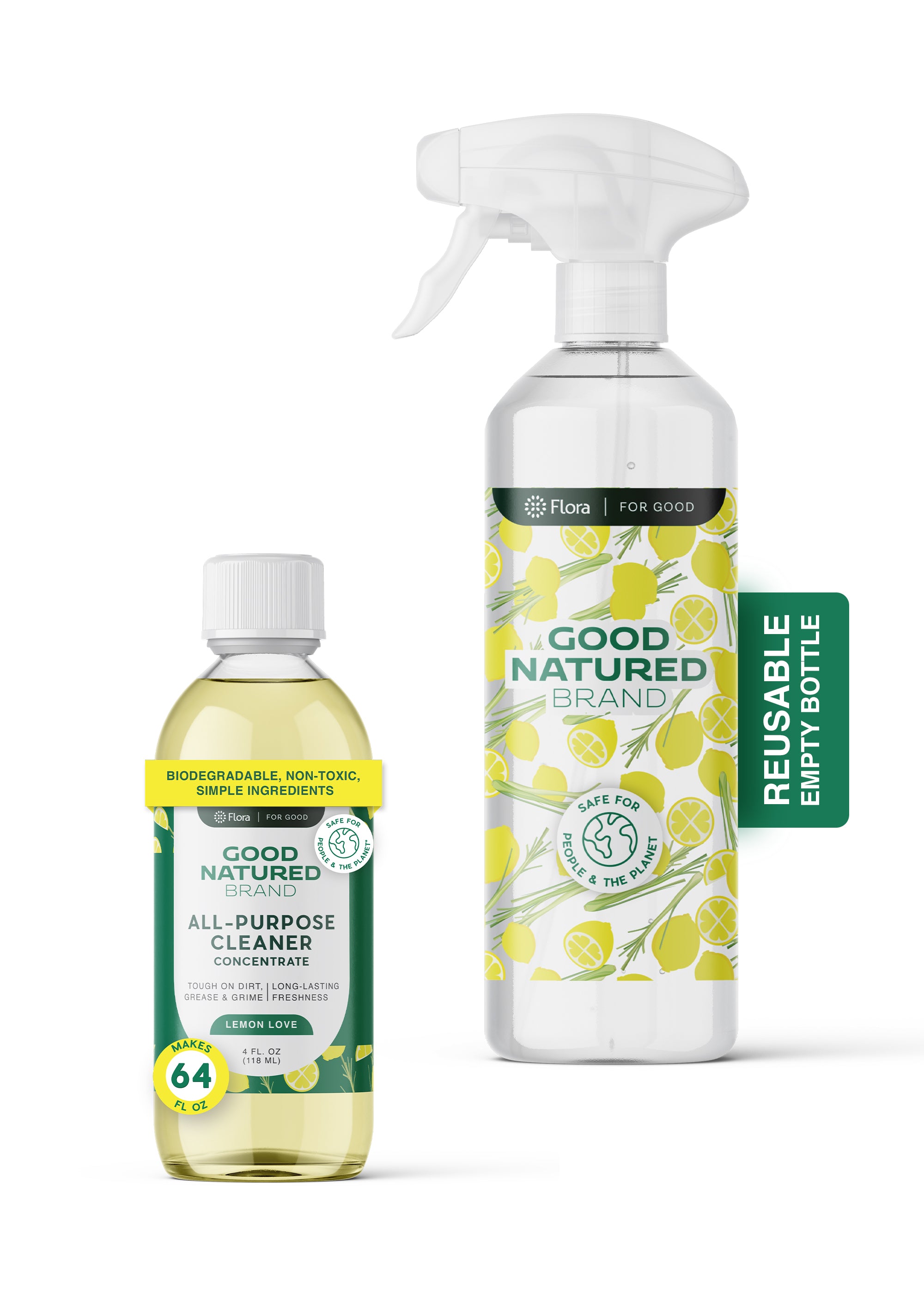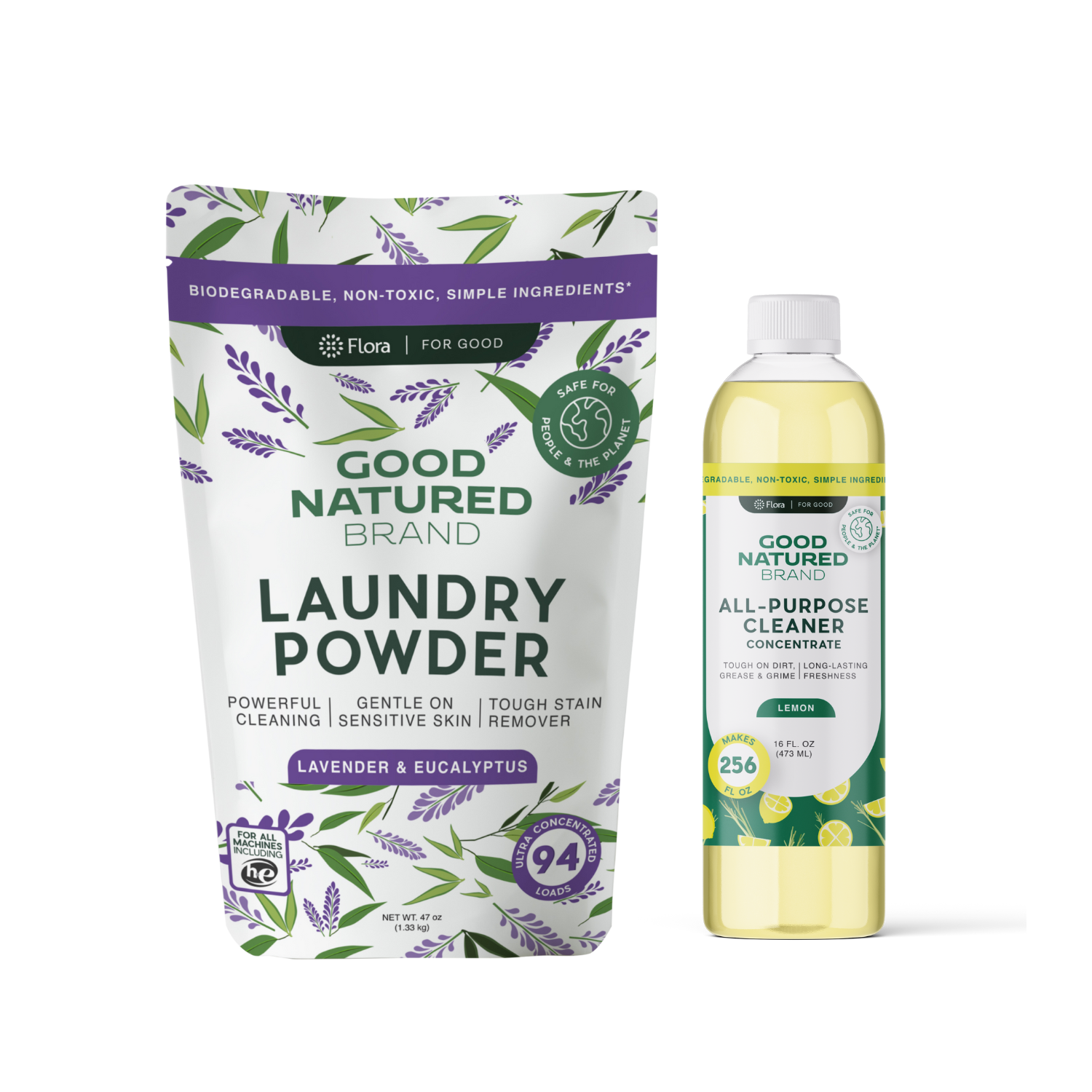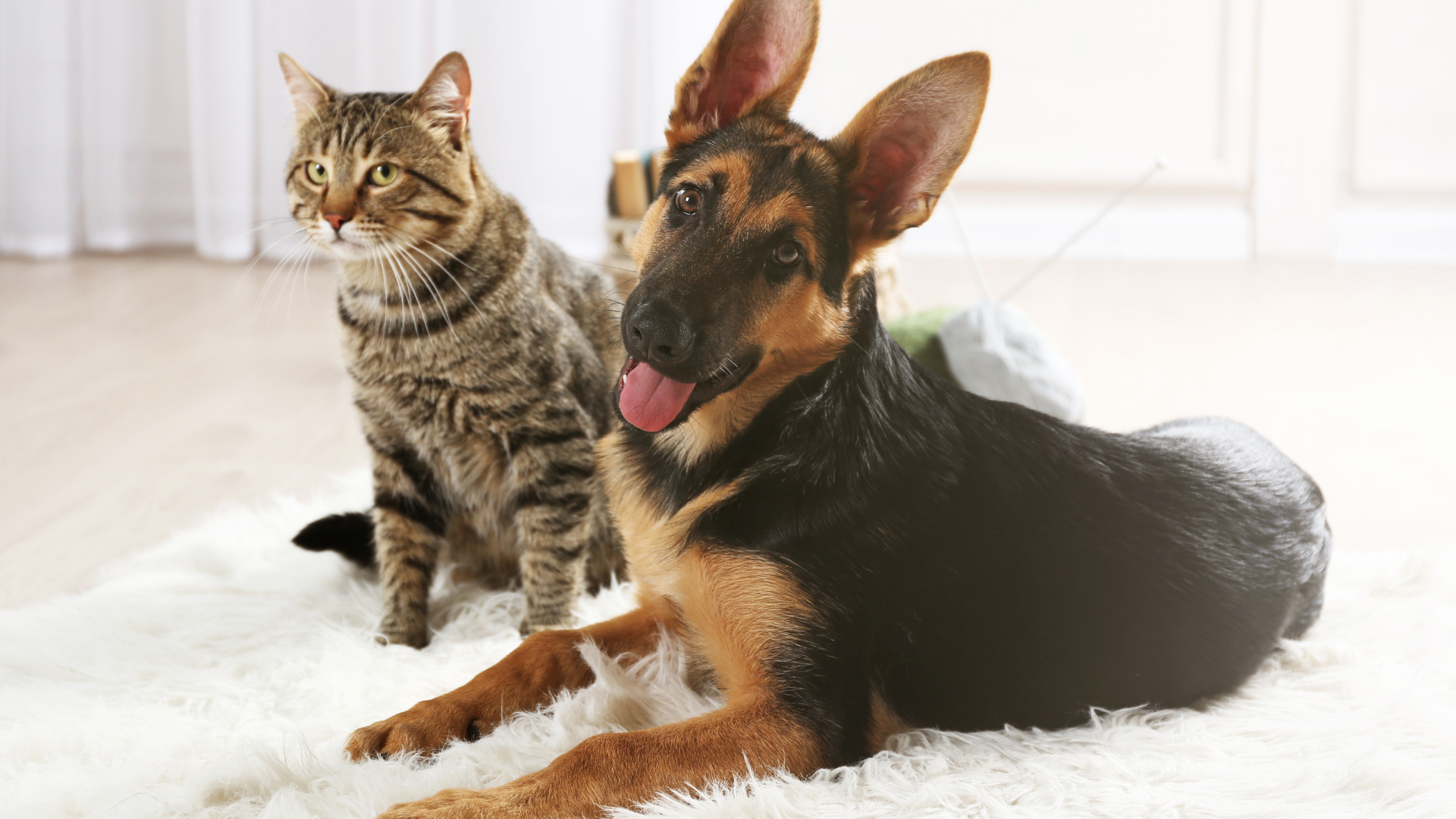If you’re a cat parent, you’ve probably experienced the surprising, ticklish sensation of your cat licking your hand, arm, or even your face. It’s one of those endearing yet puzzling behaviors that leaves many people wondering: why do cats lick you? Is it affection, a grooming habit, or something else entirely?
At Good Natured Brand, we know that understanding your cat’s behavior is one of the best ways to strengthen your bond with them. Whether they’re rubbing against your legs, kneading on your lap, or giving you a few gentle licks, these small gestures are part of how cats communicate love, trust, and comfort. In this article, we’ll dive into the science and emotion behind your cat’s licking habits, what it really means, and when it might be a sign of something more.
Why Do Cats Lick You? The Emotional Reasons
One of the most common reasons cats lick their humans is simple: affection. Licking is a form of social bonding in the animal world. Among cats, this behavior is known as allogrooming, where cats groom one another to build trust and strengthen relationships. When your cat licks you, they’re showing that they see you as part of their family.
Licking also releases endorphins—feel-good hormones that help cats relax. It’s both soothing and rewarding for them, which explains why your cat may lick you while purring or cuddling.
Licking as a Love Language
Your cat can’t say “I love you,” but licking is one of their ways of expressing it. Just like you might stroke their fur or give them treats to show affection, their tongue serves as a similar form of emotional connection.
Some cats lick their owners after playtime or while being petted. In these moments, they’re reciprocating your affection. They feel safe, loved, and comfortable in your presence—so their instinct is to groom you as they would a trusted feline companion.
Why Cats Lick and Then Bite
Sometimes, licking is followed by a gentle nibble. While it may seem confusing, this combination is a normal part of feline interaction. In the wild, cats often mix licking and light biting while grooming one another. However, if your cat’s bite feels too strong, it might mean they’re overstimulated. It’s their subtle way of saying, “That’s enough affection for now.”
The Instinctual and Biological Reasons Cats Lick You
Cats are born with grooming instincts. From the moment they’re born, mother cats lick their kittens to keep them clean, regulate body temperature, and provide comfort. As kittens grow, they learn to groom themselves and their littermates—a behavior that becomes ingrained for life.
When your cat licks you, it’s a continuation of this natural grooming habit. They may associate you with the same comfort and care they received as kittens.
Licking as a Way to “Mark” You
Cats are territorial creatures. By licking you, they may also be engaging in scent marking—a behavior that claims you as part of their social group. Through licking, they deposit their scent on your skin, signaling to other animals that you belong to them. It’s both possessive and affectionate.
You may notice this behavior more if your cat senses unfamiliar scents on you, such as another pet, person, or cleaning product. Keeping your home environment familiar and clean can help reduce anxiety-driven licking. Using natural, non-toxic All-Purpose Cleaners around your home ensures your cat doesn’t encounter harsh chemicals or overwhelming odors that could confuse their sense of smell.
What It Means When Your Cat Licks Your Hair or Face
Cats often lick each other’s faces and heads as a form of social grooming. When your cat licks your hair or face, they’re doing the same thing—demonstrating trust and affection. This behavior is intimate because your face and head are sensitive areas; cats only lick those they truly feel comfortable with.
Hair Licking: Imitating Grooming Rituals
When your cat licks your hair, they may be trying to “groom” you just like another cat. Your hair texture might feel similar to fur, and they might think they’re helping you stay clean. It’s a sign of strong emotional bonding, though it can be a little uncomfortable!
Additionally, cats are drawn to scent. If you’ve recently showered or used a hair product, your cat may lick your hair to reestablish their familiar scent on you. Maintaining a clean, odor-balanced environment can help satisfy this instinct. Try refreshing your home naturally with Carpet Deodorizers, which keep spaces smelling fresh without artificial fragrances that could irritate your cat’s sensitive nose.
Face Licking: Signs of Deep Trust
If your cat licks your face, it’s one of the ultimate signs of love. Cats typically lick each other’s faces only when they share a strong bond. So, when your cat chooses to groom your cheeks or chin, it’s their way of saying, “You’re family.”
However, it’s best to discourage face licking if you have open wounds or sensitive skin, as cat saliva contains natural bacteria. If you allow it, make sure your skin is clean and free of strong-smelling products or cleaners that might discourage this affectionate gesture.
Why Cats Lick Your Hands or Arms
Have you ever noticed your cat licking your hand after you pet them? This behavior often has to do with taste and scent. Human skin can carry traces of salt, lotion, or even food residue—all of which can attract a curious feline tongue.
Salt and Scent Attraction
Cats have strong taste receptors for salt. When you sweat, your skin becomes mildly salty, and your cat might find it interesting enough to lick. It’s not unusual—they may simply enjoy the flavor or associate it with the bond they feel while being close to you.
Cleaning or Imitation Behavior
Your cat may also lick your hands because you’ve been touching them or another pet. Licking can be their way of “cleaning up” after contact or reasserting their scent on you. Cats communicate primarily through smell, so they might be trying to remind you (and themselves) that you belong to their social group.
Hygiene Note for Pet Parents
Cats are sensitive to chemical residues, so it’s essential to ensure that your skin doesn’t carry traces of harsh cleaning agents. After cleaning your home, using plant-based, pet-safe All-Purpose Cleaners ensures your cat won’t lick up anything toxic. The same goes for your living environment—keeping surfaces clean naturally benefits both you and your feline friend.
Is It Normal for Cats to Lick You Constantly?
Occasional licking is normal and healthy, but excessive licking can sometimes signal an issue. Cats who lick their owners too often may be experiencing stress, boredom, or separation anxiety.
When Licking Becomes a Habit
Cats are creatures of routine. If they associate licking with comfort or attention, they may start doing it habitually. Over time, this can turn into compulsive behavior—especially if their environment feels chaotic or unclean.
Maintaining a calm, scent-stable environment can help. Using gentle Carpet Deodorizers can neutralize odors that may cause discomfort, while washing your cat’s bedding and blankets with Laundry Powders ensures their favorite resting spots stay fresh and allergen-free.
How to Help an Overly Licky Cat
If your cat’s licking becomes obsessive, try:
-
Increasing playtime to reduce anxiety.
-
Offering puzzle toys for mental stimulation.
-
Setting up safe spaces where they can retreat and relax.
-
Avoiding punishment—redirect their attention gently.
If the behavior persists, consult a veterinarian to rule out medical causes like skin irritation or hormonal imbalances.
The Emotional Connection Between You and Your Cat
Every lick is a small but meaningful expression of love and trust. Whether your cat licks you after a cuddle, before a nap, or while purring, it’s a way of saying they feel safe and connected.
Understanding the “why” behind your cat’s licking deepens your relationship and helps you respond in a way that reinforces positive bonding. Just like cleaning your home with safe, non-toxic products creates a healthy environment for both of you, respecting your cat’s instincts helps build mutual trust and comfort.
For example, keeping your cat’s favorite resting area clean with All-Purpose Cleaners and Laundry Powders removes unwanted odors and allergens that might cause stress. Cats thrive in spaces that feel familiar, fresh, and safe—qualities that go hand-in-hand with natural cleaning habits.
When to Worry About Your Cat’s Licking Behavior
While occasional licking is a sweet sign of affection, too much licking can signal stress, anxiety, or even underlying medical issues. If your cat licks you excessively or starts grooming themselves to the point of hair loss or irritation, it’s time to pay closer attention.
Behavioral Reasons for Excessive Licking
-
Anxiety or stress: Changes in routine, new pets, or unfamiliar smells can cause nervous licking.
-
Attention-seeking: Cats quickly learn that licking gets your attention, so they may overdo it if they’re feeling ignored.
-
Boredom: A lack of stimulation can cause repetitive behaviors like over-grooming.
Medical Reasons for Over-Licking
Sometimes, excessive licking isn’t behavioral—it’s a symptom of discomfort. Possible causes include:
-
Skin allergies (to food, dust, or chemical cleaners)
-
Pain from arthritis or injury
-
Parasites such as fleas or mites
-
Hormonal imbalances affecting the skin and coat
If you notice red patches, missing fur, or obsessive grooming, schedule a vet visit to rule out medical issues.
Meanwhile, ensuring that your home environment is calm and toxin-free can significantly reduce your cat’s stress levels. Cleaning surfaces, bedding, and play areas with gentle, non-toxic All-Purpose Cleaners helps eliminate irritants that might trigger allergic or behavioral reactions.
How to Stop Your Cat from Licking You Too Much
If your cat’s licking becomes uncomfortable, it’s important to address the behavior gently. Never punish your cat for licking—it’s their way of communicating. Instead, use redirection and environmental cues to manage it effectively.
Offer Distractions and Positive Alternatives
-
Redirect with play: Use a wand toy or treat puzzle to shift their focus.
-
Use gentle verbal cues: Calmly say their name or move your hand away when they start licking.
-
Increase playtime: Cats often lick out of boredom. Regular play helps release pent-up energy.
Keep Your Hands and Environment Clean
Cats often lick because they detect interesting scents on your skin. If you’ve been cooking, cleaning, or using scented products, those smells can attract them. Before spending cuddle time, wash your hands with mild, fragrance-free soap.
Also, clean frequently touched areas like tables and furniture with All-Purpose Cleaners. Their plant-based formula removes residue and neutralizes scents safely, reducing your cat’s urge to lick curious new smells.
Provide Comfort Through Cleanliness
A clean, odor-free home helps cats feel at ease. Regularly freshen up their favorite spots using Carpet Deodorizers to neutralize lingering odors naturally. This helps maintain a calm environment—especially if your cat’s licking is stress-related.
And don’t forget their bedding! Washing blankets, cushions, and pet beds with Laundry Powders keeps their resting areas free from allergens and bacteria. Cats are much more likely to relax—and lick less—when their surroundings smell fresh and familiar.
Is It Safe to Let Your Cat Lick You?
For most healthy cats, a few licks now and then are harmless. However, it’s important to understand the hygiene and safety considerations for both you and your feline friend.
Understanding Cat Saliva
Cat saliva contains natural enzymes that help clean their fur and wounds. However, it can also carry bacteria that may be unsafe if you have open cuts or a compromised immune system. Avoid letting your cat lick your face or broken skin.
If you allow your cat to lick your hands, make sure you wash them afterward—especially before eating. This protects you from potential bacteria while still letting your cat show affection safely.
Hygiene Tip for Pet Parents
Cats explore their world with their tongues, which means they may pick up germs along the way. Maintaining a clean home helps minimize this risk. Use All-Purpose Cleaners for general cleaning, and wash soft surfaces regularly with Laundry Powders to keep your living space fresh and hygienic.
These steps ensure that even when your cat’s licking habit continues, your shared environment stays safe and sanitary.
The Link Between Licking and Scent
Cats rely heavily on scent for communication. When your cat licks you, they’re not just showing affection—they’re also sharing and blending scents to mark you as part of their social circle.
Licking helps spread their natural pheromones, reinforcing the idea that you belong to their territory. This scent exchange brings them comfort, especially when their environment smells familiar.
How Cleaning Affects Feline Scent Behavior
Cats can become anxious when strong artificial scents mask their familiar surroundings. For example, heavily perfumed sprays or chemical cleaners can disrupt their sense of safety. Using naturally derived products like Carpet Deodorizers maintains a fresh-smelling home without overpowering your cat’s delicate nose.
The key is balance: a clean home that smells pleasant to you while remaining gentle enough for your cat’s sensitive olfactory system.
Psychological Reasons Behind Licking: Comfort and Territory
Cats are deeply emotional animals. Sometimes, licking isn’t just about grooming—it’s a way to cope with stress or express comfort.
Licking for Self-Soothing
If your cat is anxious or uncertain, licking you might serve as a self-soothing behavior, similar to how some humans fidget under stress. This type of licking often increases during times of change—like moving homes, adding a new pet, or rearranging furniture.
Maintaining a familiar, calm atmosphere helps. Cats find peace in routine and cleanliness, so regularly tidying their spaces with natural All-Purpose Cleaners and refreshing carpets with Carpet Deodorizers can reduce stress triggers in the environment.
Licking to Claim Territory
Your cat might also lick you as part of marking you as “theirs.” Cats use scent-based communication to establish belonging. When they lick you, they deposit their scent, reinforcing that bond. This is perfectly normal behavior and a sign of trust—though you can gently redirect if it becomes excessive.
Keeping Your Home Clean and Cat-Safe
Creating a hygienic, stress-free environment benefits both you and your feline companion. Cats are incredibly sensitive to smell and texture, so choosing pet-safe cleaning products is vital.
-
Use All-Purpose Cleaners: Perfect for wiping down feeding areas, litter box zones, and furniture. These plant-based cleaners remove dirt without leaving harsh residues.
-
Deodorize naturally with Carpet Deodorizers: Keeps carpets and rugs smelling fresh while neutralizing pet odors safely.
-
Wash fabrics with Laundry Powders: Ideal for pet blankets, cushion covers, and beds—keeping your cat’s environment cozy and clean without synthetic fragrances.
A fresh, non-toxic home helps prevent stress-related behaviors (like over-licking) and supports overall well-being.
Frequently Asked Questions About Why Cats Lick You
Why do cats lick and then bite?
It’s a mix of affection and communication. A gentle bite often follows licking when your cat feels overstimulated or playful.
Why does my cat lick my face when I sleep?
Cats often lick during quiet, bonding moments. Licking your face may be their way of grooming you while you’re calm and still.
Is it bad to let my cat lick me?
Not necessarily—but avoid letting them lick open wounds or sensitive areas. Wash afterward to maintain hygiene.
Why does my cat lick my hair or beard?
Cats often lick hair because it mimics fur. It’s a form of social grooming—a sign of trust and companionship.
How do I stop my cat from licking me excessively?
Gently redirect the behavior with toys, play, or petting. Avoid yelling or pushing them away suddenly, as that can increase anxiety.
Final Thoughts: What Your Cat’s Licks Really Mean
So, why do cats lick you? Ultimately, it’s a blend of affection, comfort, instinct, and scent marking. Your cat’s licks are their way of saying, “You’re part of my world.”
By understanding the emotional and behavioral reasons behind licking, you can respond with empathy while keeping your environment clean and safe. Cats thrive in peaceful spaces with familiar scents—places where they can relax, play, and bond freely.
At Good Natured Brand, we’re here to help pet parents create those spaces. From non-toxic All-Purpose Cleaners for spotless surfaces to gentle Laundry Powders and natural Carpet Deodorizers, our products make it easy to maintain a home that’s fresh, pet-friendly, and full of love.
For more insights into pet behavior and eco-conscious living, visit the Good Natured Brand Blog. Because when your cat feels safe and comfortable, every purr, lick, and cuddle becomes a little more meaningful.

